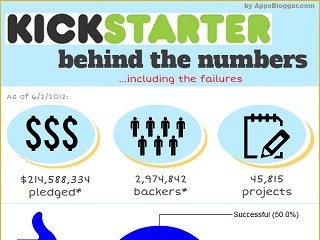The FDA outlines draft guidance on AI for medical devices
The agency also published draft guidance on the use of AI in drug development
Read more...
Twitter has become a universal barometer for what the world is paying attention to in popular culture. We know that award shows, athletic events, acts of terrorism and now missions to Mars, make the micro-blogging service explode with feedback and sharing.
While the Western world was suppose to be sleeping, NASA landed its rover, Curiosity on Mars and transmitted images back to Earth after traveling hundreds of millions of miles through space. Leading up to the landing and image barrage, hashtags flew across the Web in anticipation and support of the mission that cost more than $2.6 billion.
Thousands of tweets in excitment and support flew about and interest in Curiosity exploded overnight. The rover is supposed traverse on Mars for two years and birthed a lot of fun hashtags speculating what it might discover (including #WhatCuriosityWillFind).
"Tonight, on the planet Mars, the United States of America made history," President Obama said in a statement. "It proves that even the longest of odds are no match for our unique blend of ingenuity and determination."
"I congratulate and thank all the men and women of NASA who made this remarkable accomplishment a reality–and I eagerly await what Curiosity has yet to discover," Obama concluded.
Suddenly millions of people around the world were familiar with what NASA had dubbed the "seven minutes of terror," (a small window of time during which the rover would attempt to land on Mars) and as images tweeted across our planet, a renewed spark strengthened for space exploration.
The tech world is no stranger, now, to the idea of crowd-sourcing. Several young companies such as Kickstarter, FundMe and Indigogo have all become common points of conversation in the tech world, especially after one tech company building the Pebble watch, broke all-known records in crowd-funding a few months ago. Now a new funding project is gaining steam -- #fundNASA.

When you break it down, it would cost each US taxpayer approximately $7 to pay for the Curiosity project -- which is less than, 1% of the U.S.’s current military budget, and some are suggesting taking the crow sourcing route to get the new defunded NASA back on track.

While not finalized just yet, many have investors and entrepreneurs have seen the JOBS Act as a saving grace for funding new businesses. Everyone from musicians and restaurants to tech companies and manufacturers are crowd-sourcing to make projects happen.
The JOBS Act passed the House over the spring, was then amended and passed by the Senate, then passed once again by the House.
It would be interesting to see if NASA entertains this new idea of croud-funding space exploration and how that reflects on our governement, which recently cut its funding. It could be promising for scientific efforts that can gain public support but could prove very tricky and dangerous for other research that is harder to conceptutalize to the people at large. We can only hope it doesn't start a trend where the government starts backing off of its research funding in hopes that the American people take up the slack.
It could be a slipperly slope and one that would be far less fruitful, especially considering that at least 41% of all projects on Kickstarter are considered failures or unsuccesful in raising funds.
(Image Source: TPM)
The agency also published draft guidance on the use of AI in drug development
Read more...The biggest focus areas for AI investing are healthcare and biotech
Read more...It will complete and submit forms, and integrate with state benefit systems
Read more...




